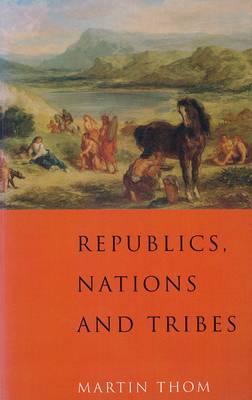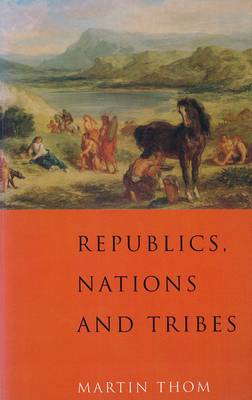
- Afhalen na 1 uur in een winkel met voorraad
- Gratis thuislevering in België vanaf € 30
- Ruim aanbod met 7 miljoen producten
- Afhalen na 1 uur in een winkel met voorraad
- Gratis thuislevering in België vanaf € 30
- Ruim aanbod met 7 miljoen producten
Zoeken
Omschrijving
In the late eighteenth and early nineteenth centuries, European perceptions of the ancient city underwent a dramatic alteration, due mainly to revulsion at the terror. Republics, Nations and Tribes relates that shift, both in ethnology and histiography. Thus the book is a novel and detailed study of the shifting concepts of liberty--and, in particular, the drift from classical/republican to Germanic/Romantic thought--at a key time of transition in European history, 1795-1848. Republics, Nations and Tribes shows how deeply the dominant historiographical traditions in Western Europe have been marked by the Romantic trial of the Enlightenment and how, as a consequence, due weight has rarely if ever been given to the castigation suffered by the philosphes for their role in the subversion of the old regime. According equal attention to language, history and politics, Martin Thom explores the contested nature of liberty in cities and liberty through nations. In so doing, he provides a fascinating collective biography of the some of the era's most influential thinkers, and a brilliant and original intellectual history of this decisive history.
Specificaties
Betrokkenen
- Auteur(s):
- Uitgeverij:
Inhoud
- Aantal bladzijden:
- 360
- Taal:
- Engels
Eigenschappen
- Productcode (EAN):
- 9781859840207
- Verschijningsdatum:
- 17/07/1995
- Uitvoering:
- Paperback
- Formaat:
- Trade paperback (VS)
- Afmetingen:
- 152 mm x 231 mm
- Gewicht:
- 635 g

Alleen bij Standaard Boekhandel
+ 62 punten op je klantenkaart van Standaard Boekhandel
Beoordelingen
We publiceren alleen reviews die voldoen aan de voorwaarden voor reviews. Bekijk onze voorwaarden voor reviews.











